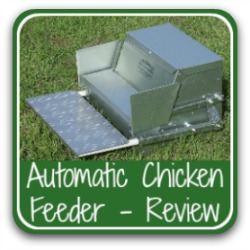An inexpensive, home made electrolyte drink for weak or vulnerable chickens.
So you've heard about electrolytes for chickens but you're not sure what they are or when to use them?
Or maybe you have a sick chick or chicken who's in need of a quick boost, and you've heard that an electrolyte drink will help – but you don't know how to go about making it.
In this article, you'll discover...
- what electrolytes are
- when they can help baby chicks
- when they can help adults
- how you can make them easily and inexpensively
- how to feed them
- where to buy if you don't want to make.
What exactly is an electrolyte drink?
For humans, you'll probably have heard of electrolytes in the context of sports or illness.
It's taken as a drink which replaces salts the body loses when we exercise hard, or when we've been ill and sweated a lot, or lost liquid through vomiting, for example.
Electrolytes help the body rehydrate by replacing, in particular, the minerals which cells and organs need to function healthily.
These drinks are sold commercially: Gatorade is one you've probably heard of. But commercially produced sports drinks tend to have added ingredients like flavouring and colouring, which are best avoided.
Electrolyte drinks do basically the same for poultry as for humans. They help to rehydrate and re-balance the cells and organs whenever chickens need it.
And sometimes, they can literally be a life-saver.

When do baby chicks need electrolytes?
- Weak chicks: Sometimes newly-hatched chicks, or chicks sent through the post, require a bit of extra help. Maybe they've had a long, hard struggle to hatch, or there's a baby who's not quite as strong as the rest, or they've had a long journey without water.
- Pasty butt: Chicks who suffer from pasty butt are in danger of losing liquid very quickly - and a young chick doesn't have many reserves to call on. If you're not sure what "pasty butt" is, this article has all the details.
- Wry neck: Chicks (or adults) who develop problems such as wry neck require a mixture of electrolytes and vitamins. Find out more about wry neck, here.
- Overheating: It's easy for chicks to overheat in a brooder, particularly if you have a lot of them or if you're using a standard heat lamp.
- I've written an article about heat in the brooder which will help you keep the temperature right. But if something goes wrong, it's electrolytes you'll need.

When adult chickens most commonly need electrolytes.
- Heat stress: This is the most common reason for needing to rehydrate poultry. They can deal with cold far better than they deal with heat - they have feathers to protect them.
- In hot weather, unless precautions are taken, it's very easy for chickens to overheat. And heat exhaustion can kill very quickly.
- Find out more about how to spot, treat and prevent heat stress in your flock.
- Frostbite: Conversely, poultry suffering from extreme cold and potentially frostbite also need electrolytes replacing.
- Find out more about dealing with extreme cold in your flock.

When might the flock in general need electrolytes?
Chickens are creatures of habit, and very easily stressed if their routine changes. They're also easily stressed by things like:
- Overcrowding in the coop
- Too much handling - particularly by inexperienced people and children, who can be quite rough
- Travelling, no matter how short the journey
- Moulting
- Infestations, such as mites
- Awareness or direct experience of predators around the coop
- Injury, however caused
- Illness in the flock
- The death of other flock members.
If you notice changes in your flock's behaviour – panting, spreading their wings, cowering, not eating or drinking, poor egg production, or lethargy, for example – it's time to bring out the electrolytes.
 One of my young Red Stars trying to cool down by dust-bathing. Notice the open beak - a sure sign of over-heating.
One of my young Red Stars trying to cool down by dust-bathing. Notice the open beak - a sure sign of over-heating.
An inexpensive, home made chicken electrolyte recipe.
(Links in the next sections are "affiliate links", which means that if you click and buy something, I earn a small commission at no extra cost to you).
There are various recipes available. This one has all the necessary ingredients, no matter the reason your flock needs it.
Electrolyte powder: the dry ingredients.
Make up these dry ingredients first and store in a jar in a cool, dry place. This mixture will keep indefinitely as long as it does not attract moisture.
- 2 tablespoons granulated sugar
- 2 teaspoons baking soda
- 2 teaspoons salt
- 2 teaspoons potassium chloride (optional - see below)
How to make up the electrolyte drink.
How much you use will, of course, depend on the size of your flock.
- For a large amount, use 4.5 litres (one gallon) of water and add 6 teaspoons of the powder.
- For a few chickens, use 1 litre (one quart) of water and add 1.5 teaspoons of powder.
- Using ordinary tap water is fine. If yours contains chlorine, allow it to stand for 12 hours or so before using it.
- Organic coconut water contains some potassium which is an excellent aid to hydration, so keep some in stock.
Don't keep the liquid electrolyte drink for longer than a day.

A word about potassium chloride.
Potassium chloride is commonly added to electrolyte drinks, and is available in health food shops. But it can be expensive.
Salt substitutes like Lo-Salt (which is inexpensive, and readily available in supermarkets worldwide) contain around 66% potassium chloride, so you can use this instead. Put it on your shopping list next time you head out to the supermarket, so it's always available in your store cupboard.
Or buy it now so you don't forget.
If you can't find it, try a health food shop for pure potassium chloride, and keep it in your flock's first aid kit (you do have one, don't you?).
If all else fails you can buy it from Amazon.
Coconut water (as I mentioned above) also contains potassium, although at a much lower level - around 5%.
How to make sure your flock get enough electrolytes.
- For newly-hatched chicks who need some help, use an eye dropper. Keep a few of these in your chicken first aid kit.
- Just squeeze a couple of drops of liquid onto the beak. The chick will automatically open and drink.
- If you don't have a dropper, use a teaspoon.
 If you don't have a dropper to hand, use a teaspoon to give sick or weak chicks some electrolyte mixture.
If you don't have a dropper to hand, use a teaspoon to give sick or weak chicks some electrolyte mixture.- For adults, it can be given in an ordinary waterer.
- Offer it for no longer than four to six hours per day, for a week. For the rest of the time, have plenty of ordinary water available.
- Offer it only to the birds who need it. If your whole flock is showing signs of heat stress that's fine – leave it in the general waterer for half a day, every day for no longer than a week. If it's only one or two hens, isolate them first.

What if you need an electrolyte drink and you don't have the ingredients?
If you don't have the ingredients in stock and need an electrolyte drink quickly, you can use a commercial sports drink like Gatorade. Don't do this for longer than absolutely necessary, though – the salt and sugar levels are higher than chickens need.
You can also keep electrolyte liquid (or powder) in your flock's first aid kit. It's a more expensive option, but perhaps more convenient.
If you're going to go down this route, keep a brand which contains vitamin powders as well, so that if something like wry neck hits your flock you're ready.
This brand of electrolyte powder is excellent, and despite its name is equally as effective for adults as for baby chicks.
Please remember...
It's important that you don't give electrolytes to poultry unless there is a good reason. Too much salt can be damaging to their system.
If you liked this page, these may interest you too.
Sources.
A lot of "facts" you'll find on the internet are often people's individual views, based on inaccurate information repeated from poor quality sources.
The information I provide in this article and others is based not just on my own experience, but on evidenced facts from scientific, peer-reviewed research and books from highly respected and experienced poultry keepers such as Gail Damerow.
Some of the trusted sources I have used in this article are these.
1. Deyhim et al: The effect of heat stress and drinking water sale supplements on plasma electrolytes and aldosterone concentration in broiler chickens. Pub. US National Library of Medicine, 1995.
2. Smith, M.O. and Teeter, R.G.: Potassium balance of the 5 to 8 week old broiler exposed to constant heat. Pub. National Center for Biotechnology Information.















